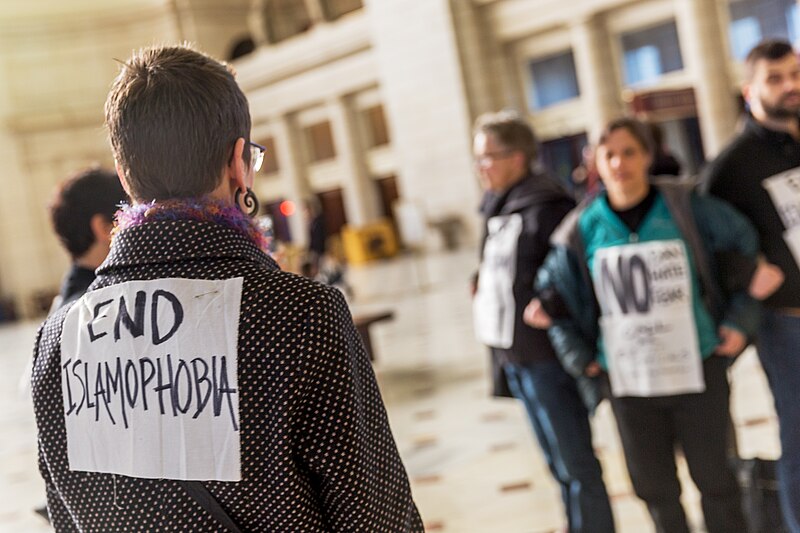
Throughout history, religion and politics have been intertwined. Neither makes sense without the other; this intertwining is a major thread in the human story.
At the moment, Britain is facing a very significant and imminent threat as these two spheres of activity combine once more. The new Labour government, according to all reliable political sources, was until recently planning to adopt and enshrine in the criminal law a definition of ‘Islamophobia’ which is intended to penalize ‘hate speech’ and extend to an unwonted degree the increasing shackles on free speech so characteristic of intolerant wokery.
The proposed definition would have drawn heavily upon, if not duplicated exactly, that of the All-Party Parliamentary Group (APPG) on British Muslims. The APPG defines Islamophobia as ‘rooted in racism and is a type of racism that targets expressions of Muslimness or perceived Muslimness.’
Thankfully, the government seems to be backtracking. The faith minister, Wajid Khan, has signalled as much by saying that the APPG definition ‘is not in line with the Equality Act 2010’. Still, Khan also stated that ‘tackling religious hatred’ was a priority for the government and that defining ‘Islamophobia’ is an important part of that. So, a watered-down version might be on the horizon. This is still very worrying, and a vigorous and urgent response to this threat is a pressing matter.
This response must involve a clear statement of the objections to anything like the APPG formula. First, it is ludicrously vague and impractical. We are all aware of the by now many absurd cases in which police officers have interrogated ‘suspects’ who have posted ‘offensive’ things online.
Secondly, it will create a climate of anxiety and fear which will deter legitimate criticism of Islam. Is it going to be criminal to refer to Trevor Phillips’s 2016 Channel 4 documentary What British Muslims Really Think, which suggested that a significant proportion of British Muslims held views that were at odds with mainstream British society, particularly on issues like homosexuality, gender equality, and integration? For example, more than half (52%) believed that homosexuality should not be legal, 39% agreed that ‘wives should always obey their husbands’, and 23% supported introducing Sharia law to Britain.
Phillips argued that the findings highlighted a level of social segregation and a lack of integration among some Muslim communities in the UK. He used the phrase ‘a nation within a nation’ to describe the situation, suggesting that many British Muslims were living in parallel societies with values that were distinct from, and even contrary to, those of wider British society.
Thirdly, the whole concept of ‘Islamophobia’ is entirely spurious. I do not wish to needlessly duplicate the conclusive dismissal given to this term by the likes of Douglas Murray, Sam Harris, and Christopher Hitchens. Suffice it to say that the introduction of the word is a brilliant, and successful, propaganda coup. By this act of lexical legerdemain, which reminds us of the similar term ‘homophobia’, the plight of Muslims as an oppressed group is compared to the plight of gays and other persecuted minorities. The strategy is all the more offensive in that Islam is fanatically opposed to homosexuality.
The legal definition of ‘Islamophobia’, whether it draws on the APPG definition or not, will almost certainly have as its central component the claim that ‘Islamophobia’ is a form of racism. This claim—entirely and obviously, even on its face, false—is made nowadays as a matter of routine and, weirdly, it is rarely challenged (quite recently, to give one example, I have heard Baroness Warsi repeat it with assurance).
The claim is the work of tireless operators in the field of ‘anti-racism’. By ‘anti-racism’, I mean that activity undertaken by journalists and politicians of heresy-hunting for and show-trial-like denunciations of anything deemed to have fallen afoul of a woke orthodoxy which reifies contested theories of race and racism into unchallengeable truth. (This activity, not so coincidentally, is a sure way of gaining political power, journalistic prestige, and wealth.) I do not mean genuine opponents of racism. Some examples of this type of ‘anti-racist’ include David Lammy and Chris Bryant in the House of Commons and Jonathan Freedland and Owen Jones at The Guardian (‘the loathsome Owen Jones’, according to George Galloway). They all repeat the assertion that ‘Islamophobia’ is racism without ever deigning to offer any evidence. It is supposed to be self-evident.
I would like to explore in more detail just how this linkage came about. The more intellectual YouTube podcasters seem nearly unanimous in blaming it on the malign effects of postmodernism. Although this probably played a role, I believe there is a more obvious explanation.
Around half a century ago, I could be found marching through the London streets demonstrating against apartheid; against violence against women; in favour of gay rights. Almost all of my fellow protestors were anti-racist and anti-Islam (and indeed anti-monotheism in general). We hated discrimination and we hated religion. We saw that the two were connected. What was apartheid but the creation of the Dutch Reformed Church? What was sexism but a product of misogynistic preachments from the godly? What was monotheism but the sole theoretical underpinning of homophobia?
Fast forward to the present, and the anti-religious progressives of the ’70s and ’80s are now grovelling at the feet of the mullahs. How and why did this complete reversal occur?
There was a point in British political history—difficult to pinpoint but around 1985—when the central narrative of the left, the class struggle, began to lose its persuasive power. Skilled workers were taking holidays on exotic beaches, driving expensive cars, and earning more than junior doctors. They no longer felt like an underclass. Gradually the left replaced the old meta-narrative with a new one: racism. It caught on and the left became obsessive. Political allegiance was now defined in terms of attitudes to race. More and more aspects of life previously considered uncontroversial—what you ate, where you took holidays, how you wore your hair—became political. Ludicrous doctrines emerged, for example that white people sporting dreadlocks were guilty of ‘cultural appropriation’ which, of course, was viewed as ‘racist’.
Consider the ludicrous case of Amber Rudd and David Lammy. In March 2019, during an interview on BBC Radio 2, Amber Rudd, then a member of the Cabinet, was discussing the challenges faced by women in politics, specifically black and minority ethnic women. She referred to then-shadow home secretary Diane Abbott as ‘coloured’. This was certainly awkward. At the very worst, Rudd was culpably ignorant of current practice. Certainly, there was no deliberate offence. But Rudd was piled on for this small misstep (made in the context of lamenting misogyny and racism!).
Muslims are a minority, many of them immigrants or descended from recent immigrants, and for these reasons, they historically vote Labour (this pattern, interestingly, might be breaking; in the recent election, some Muslims stood against Labour due to Labour’s prevarication on the Israel-Palestine issue—and George Galloway, incidentally, leapt on this for his own political benefit). The left wished to consolidate its political support amongst this group, and as Muslims were subject to hostility by certain sectors of the British public, the left correctly felt that defending them would be an electoral gain. So they were faced with the choice of defending Muslims on the grounds of race, or those of religion, the two supposed reasons for anti-Muslim sentiment.
Here, an obvious contradiction occurs. The left wanted to support LGBT and women’s rights and secular values, but it also wanted to support a group containing many members who were antithetical to these values. The resolution of this conflict was simply to pretend that all hostility to the Muslim religion was not really what it seemed, but racism instead. It was a blatant and sinister Orwellian deception. Now, if you were critical of Islam or Muslims, you were simply reassigned to the racist camp. And like all propaganda, the more often this idea was repeated, the more it became rooted in the soil.
And now we have the poisonous fruit: a government which is prepared to label all those hostile to the religious dogmas and practices of Islam as ‘racist’, in defiance of all logic and common sense, and to do so for electoral support and because of a cowardly intellectual capitulation to a corrupting zeitgeist.1
- None of these reflections, it should be said, can justify the fact that Muslims in Britain over several decades have been the target of verbal and physical attacks based on wholly spurious grounds completely unrelated to such issues as are discussed above. The rejection by many in the UK of the essential democratic principle that people should be free to express their religious views, however bizarre and offensive they might appear to others, can be seen most dramatically in the violent summer riots against asylum seekers (often assumed to be Muslim). Those of us seeking the establishment of a secular culture can have no truck with extremists seeking to scapegoat Muslims by unjustifiably associating them with all manner of social delinquency. ↩︎
Related reading
Cancel culture and religious intolerance: ‘Falsely Accused of Islamophobia’, by Steven Greer, by Daniel James Sharp
British Islam and the crisis of ‘wokeism’ in universities: interview with Steven Greer, by Emma Park
Confronting identity politics, a breeding ground for division and dehumanisation, by Maryam Namazie
My punk rock cancellation, by Gerfried Ambrosch
The need to rekindle irreverence for Islam in Muslim thought, by Kunwar Khuldune Shahid
Free speech in Britain: a losing battle? by Porcus Sapiens
Three years on, the lessons of Batley are yet to be learned, by Jack Rivington
Is the spirit of liberty dead in Scotland? by Noel Yaxley
The return of blasphemy in Ireland, by Noel Yaxley
Britain’s liberal imam: Interview with Taj Hargey, by Emma Park



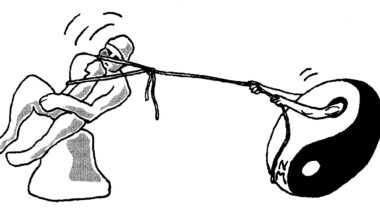
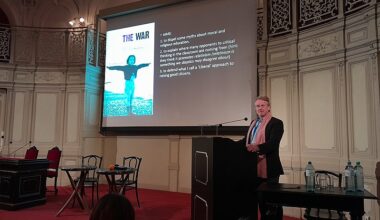
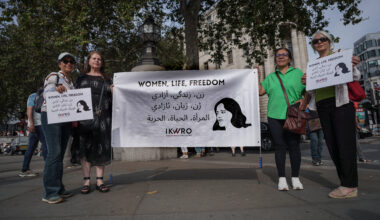
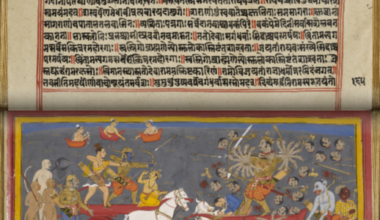
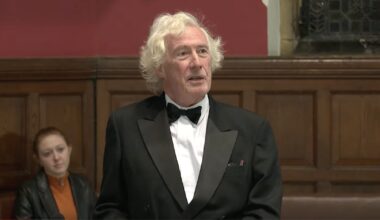
Your email address will not be published. Comments are subject to our Community Guidelines. Required fields are marked *
Donate